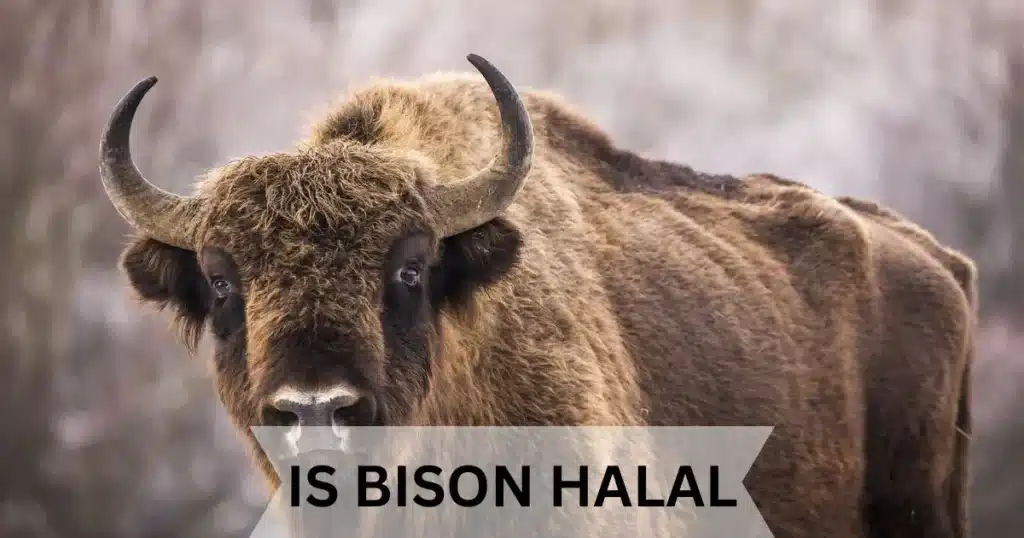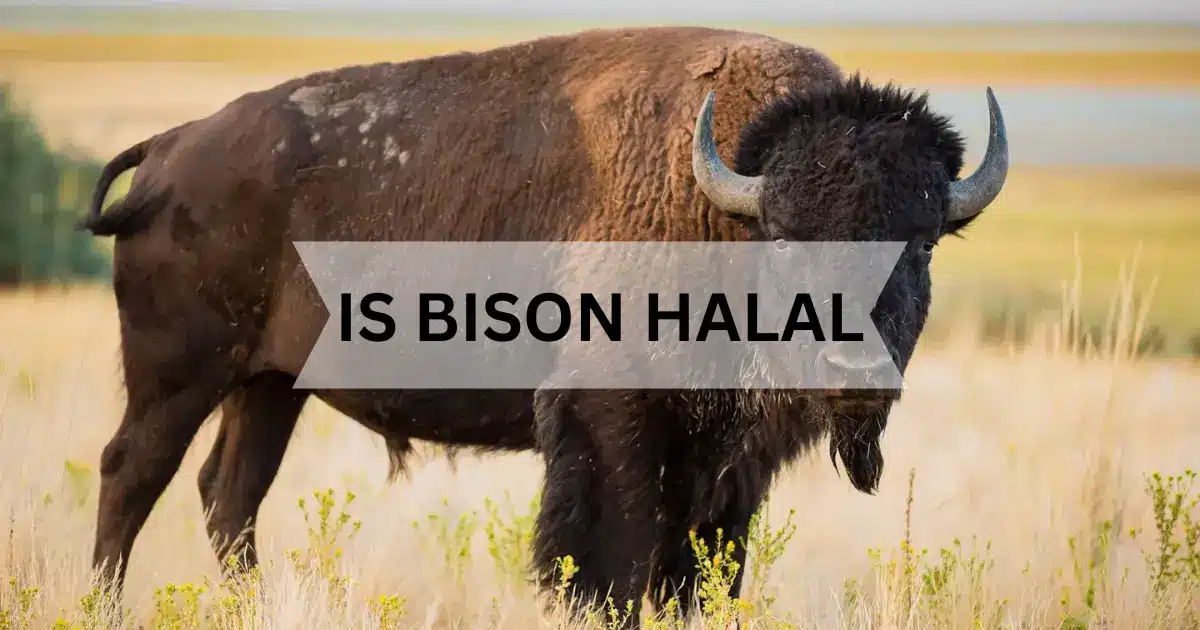In the realm of halal dietary practices, the question of whether bison meat qualifies as permissible (halal) often arises.
As more people explore alternative protein sources, bison has gained popularity due to its lean nature and distinct flavor.
In this helpful guide, we will explore the specifics of bison meat, examining its halal status according to Islamic guidelines. Let’s explore the fascinating intersection of faith and food.
Understanding Bison Meat
Bison, often referred to as buffalo, are large, grass-grazing mammals native to North America. Bison meat is gaining popularity for its rich nutritional profile, including high protein and low-fat content. Compared to beef, chicken, and lamb, bison is often considered leaner and healthier.
Is Bison Halal?
Bison meat is generally halal but must meet the general criteria for any halal meat. The bison must be slaughtered by a Muslim who invokes the name of Allah during the process, and the blood must be thoroughly drained.
If these conditions are met, bison meat can be considered halal. However, it’s crucial to avoid misconceptions that all bison meat is automatically halal without proper certification.

Halal Slaughtering Process for Bison
The halal slaughtering process for bison involves several key steps to ensure the meat is permissible for consumption according to Islamic law.
First, the bison must be healthy and of an appropriate age, generally over two years. The animal should be treated with kindness and not subjected to undue stress.
Using a sharp knife, a swift and humane cut is made to the throat, severing the windpipe, jugular vein, and carotid artery. During the cut, the slaughterer recites “Bismillah Allahu Akbar” (In the name of Allah, Allah is the Greatest).
It is crucial to allow the blood to fully drain from the bison, as this is a significant part of the halal process.
Ensuring these steps are followed properly guarantees that the meat is halal and suitable for Muslim consumption.
Are there any specific health benefits of consuming bison over other meats?
Yes, consuming bison meat offers several health benefits over other meats. Bison meat is lower in fat and calories compared to beef, making it a leaner option.
It is rich in essential nutrients like protein, iron, zinc, and vitamin B12, which support muscle growth, immune function, and overall energy levels.
Bison also contains higher levels of omega-3 fatty acids and lower levels of cholesterol, contributing to better heart health.
Additionally, bison are often grass-fed and raised without hormones or antibiotics, providing a more natural and healthier meat choice.
Other Halal and Haram Animals In Islam
In Islam, certain animals are considered permissible (halal) for consumption, while others are forbidden (haram). Here’s a closer look at the animal types:
- Permissible Animals:
- Cattle: Cows and bulls are commonly consumed and fall under the halal category. Their meat is not only permissible but also widely enjoyed in various cuisines.
- Sheep and Goats: These animals are also halal. Their tender meat is a staple in many traditional dishes.
- Certain Birds: Poultry such as chickens, ducks, and turkeys are permissible. Their white meat is versatile and forms the basis of countless recipes.
- Fish: Most fish are halal, although there are specific guidelines related to their extraction from water. Fish is a healthy protein source.
- Camels: Camels are halal, especially in certain regions where they are commonly consumed. Camel meat is lean and flavorful.
- Forbidden Animals:
- Predatory Animals: Carnivorous animals, such as lions, tigers, and wolves, are considered haram. Their predatory nature makes their meat unsuitable for consumption.
- Carrion Eaters: Animals that feed on dead flesh (carrion), such as vultures and scavengers, are also forbidden. Their diet affects the quality of their meat
Related Post
Conclusion
The halal status of bison meat remains a topic of debate within Islamic dietary guidelines. While some scholars consider bison permissible due to its similarities with cattle, others advise caution.
As a conscientious consumer, it’s prudent to prioritize traditional halal options for Qurbani, such as sheep, cows, bulls, buffalo, and camels.
Ultimately, seeking knowledge and making informed choices aligns with the spirit of halal consumption
FAQs
Bison meat can be kosher or halal, depending on the slaughtering process and certification. Both require specific religious procedures.
Bison has a richer, slightly sweeter taste than beef and is often described as tender and flavorful.
Look for a halal certification logo from a reputable certifying body on the packaging.


